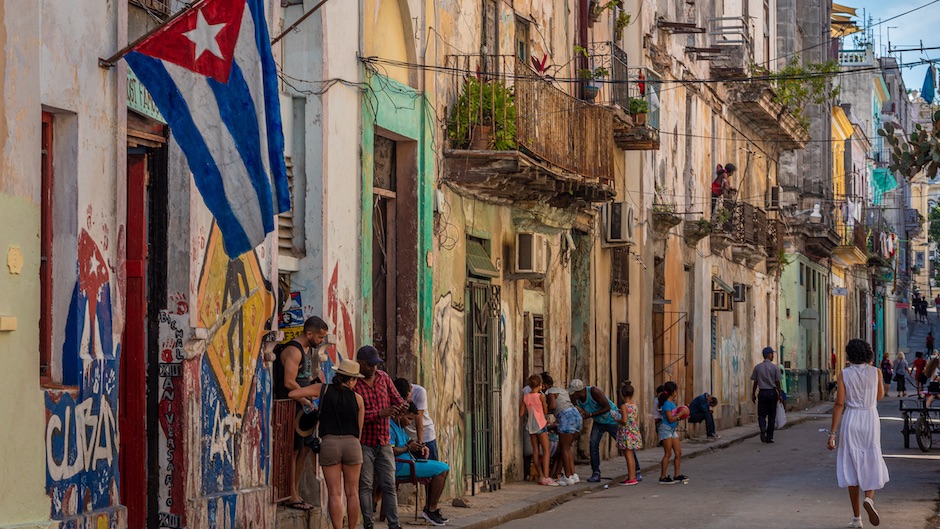Evangelicals in Cuba call for the abolition of death penalty
Since 1959, around 3,116 people have been shot on the island, mainly men and accused of common or political crimes.
Evangélico Digital · HAVANA · 29 MARCH 2022 · 17:35 CET

The independent media Atlántica recently published an open letter calling for the abolition of the death penalty in Cuba.
“In Cuba, since 1959, the death penalty by shooting has been part of the praxis and the legal body of the nation as a punishment, and has been applied mainly against men, for common or political crimes”, says the letter, signed by over twenty Cuban evangelicals, among them artists, intellectuals, pastors and activists living inside or outside the island.
The document points out that without the right to life, enshrined in the Universal Charter of Human Rights, no other rights are possible.
Among the signatories of the letter were animal welfare activists Ibis Alfaro Armenteros and Javier Larrea, visual artist Sacramento José Acebo Hidalgo, as well as journalists Yaiset Rodríguez and Yoe Suárez.
Human rights activists such as Ketty Méndez, Elsa Morejón, Tania García Hernández, a member of the Cuban Women's Network Tania García Hernández, and Tony Máx, imprisoned on 15 November 2021 near El Quijote Park after answering the call of the 15 November Civic March for Change, have also signed the document.
The letter concludes stressing that from conception to natural death, “the human being is a worthy of dignity, and no institution or person should violate, with the protection of the law, the right to life”.
A symbolic date
The request comes just a few days before 11 April, a date which commemorates the nineteenth anniversary of the execution of three young men, after nine days in custody for hijacking a passenger boat in Havana to travel to the United States.
The letter is part of the social media campaign #xlavidaenCuba (#forthelifeinCuba), also identified with the hashtags #Noalapenademuerte (#Notodeathpenalty) and #noalapenademuerteenCuba (#NotodeathpenaltyinCuba), which since last February has been creating graphic materials to raise awareness about the dangers of the new Penal Code that the regime intends to impose.
According to Archivo Cuba (Archive Cuba), an association based in Miami, around 3,116 people have been shot in Cuba since 1959.
New Penal Code includes death penalty
The draft of the new Penal Code considers the possibility of applying the death penalty in cases of crimes related to state security.
The Cuban evangelicals stress in the letter that they “are concerned to see that the Penal Code, which is to be implemented in 2022, still includes the death penalty among its articles”.
“Although it has been in moratorium since 2003, as Cuban citizens and as evangelicals we demand the abolition of this practice, which is barely kept in a few countries in the Americas”, say the authors.
“In addition to freedom and property, the right to life must be respected for each individual”, insist the signatories of the letter, adding that “the human being is worthy of dignity, and no institution or person should violate, with the protection of the law such an important concept”.
The death penalty as a “dissuasive method”
The Havana-based evangelical journalist Yoe Suárez, stressed that “the death penalty has been used by the regime as a dissuasive method, as a final weapon that could be applied to those who rebel against the socialist power in Cuba and against the socialist legality of the system”.
According to Suárez, “the fact that, although it is in moratorium, the death penalty is still in force in the Penal Code that the regime is now trying to impose is dangerous for society and specially for those of us who oppose the Cuban state, because the Cuban state is the one that has caused most deaths in the history of the Revolution through extra judicial means and sometimes with very questionable trials”.
“We have seen what is happening to people who demonstrated peacefully all over the country on 11 July, so that a weapon like this in the hands of a totalitarian state is very dangerous, not only for dissidents but for society as a whole”, added the journalist.
A recent investigation showed that Evangelicals were the religious group with most repressed leaders during the 11J protests, an understandable record considering the increasing public involvement in national political issues of this minority, which represents 7% of the population.
Pastor Mario (Mayim) Jorge Travieso recently presented the family of the political prisoner from the 11J demonstration Lorenzo Rosales Fajardo, to his congregation in the city of Victoria de Las Tunas, and has called for a service dedicated to the mothers of other political prisoners, which will take place in the near future.
Published in: Evangelical Focus - world - Evangelicals in Cuba call for the abolition of death penalty
